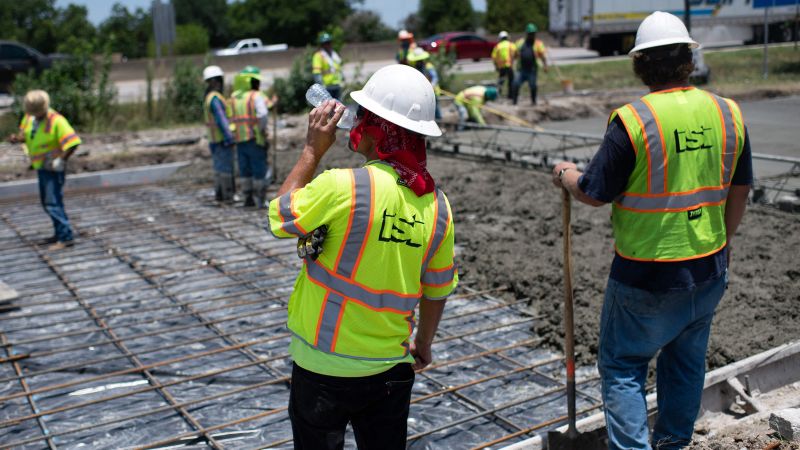Worker advocacy groups, such as Esteban Wood’s WeCount!, are working to address the issue of heat protection for outdoor employees, particularly in states like Florida and Texas where laws prevent local governments from mandating such protections. Jose Delgado’s case of collapsing due to extreme heat inspired the “¡Que Calor!” campaign to raise awareness and implement measures to ensure outdoor workers receive breaks and shade during intense heat. However, the efforts of these groups are being hindered by state lawmakers who prioritize regulatory consistency for businesses over the health and safety of workers.
States like California, Colorado, Minnesota, and Washington have some heat protection laws in place, but they are not consistently applied across all workers and industries. In Texas, local municipalities have sued the state over laws restricting their ability to enforce heat protection rules, leading to legal battles over constitutionality and enforcement. The lack of a national heat safety standard for workers, both indoors and outdoors, further complicates the issue, as outdoor workers are at much higher risk of heat-related illnesses and deaths compared to the general public.
Outdoor workers face significant risks from extreme heat, with statistics showing a higher likelihood of heat exposure-related deaths in this group. The US Postal Service has seen several employees, including postal worker Eugene Gates Jr., succumb to extreme heat while on the job, highlighting the urgent need for protective measures. While the Department of Labor and the Biden administration have proposed a rule to safeguard workers from extreme heat, the process could take years to implement, leaving workers vulnerable in the meantime.
The problem of heat protection for outdoor workers is compounded by financial incentives that pressure workers to continue working despite health risks. Some workers, such as agricultural laborers paid on a piece-rate basis, may face income loss if they take breaks for health reasons, creating a dangerous incentive to push through heat-related symptoms. Veronica Carrasco, a subcontractor living in Dallas, shared her struggles with obtaining rest breaks on the job and the fear of retaliation for requesting breaks, highlighting the pervasive issue of job insecurity and financial pressures faced by outdoor workers.
Dr. Kristina Dahl of the Union of Concerned Scientists emphasizes the importance of implementing wage protections alongside heat protections to ensure that workers are not forced to choose between their health and their livelihoods. The lack of consistent policies and regulations across industries and states further complicates efforts to ensure the safety and well-being of outdoor workers. Advocates like Ana Gonzalez and worker organizations are calling for continued collaboration between elected officials, employers, and regulatory bodies to develop best practices for protecting outdoor workers from the dangers of extreme heat, underscoring the need for coordinated action to address this pressing issue.


